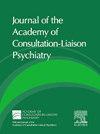口腔摄入不足的精神病学解释:临床重点回顾。
IF 2.7
4区 心理学
Q2 PSYCHIATRY
Journal of the Academy of Consultation-Liaison Psychiatry
Pub Date : 2024-09-01
DOI:10.1016/j.jaclp.2024.08.006
引用次数: 0
摘要
背景:内外科住院病人口腔摄入不足(POI)会导致营养不良,并因医疗后果和需要更多侵入性营养支持而延迟康复。许多精神疾病都可导致口腔摄入不足,但迄今为止,精神疾病在口腔摄入不足中所起的作用受到的关注有限:本综述汇集了有关精神疾病引起的急性营养不良的现有信息,并为住院成人患者的临床治疗提供了一个框架:方法:我们在 PubMed 和 EMBASE 中检索了有关精神疾病引起的 POI 的综述,但未发现相关出版物。我们还查阅了 DSM-5-TR 和 Rome IV 中相关病症的诊断标准,以及 C-L 精神病学教科书和相关学会网站。此外,作者所在机构还召开了一次病例讨论会,进一步补充了这一回顾:出于临床实用性考虑,我们将结果分为五个部分:(1)需要排除POI的医学和精神药物原因;(2)导致POI的不愉快躯体体验;(3)可能出现POI的情绪、精神、紧张和神经认知障碍;(4)进食和喂养障碍;以及(5)POI的个人和人际解释。在每一部分中,我们将回顾如何识别和处理每种情况,特别是考虑治疗对口腔摄入量的影响:POI的临床治疗因病因而异。例如,精神刺激剂可能会导致不思饮食引起的 POI;但是,精神刺激剂可以通过改善动机来治疗因食量不足引起的 POI。事实上,如此广泛的精神疾病都可能引起 POI,这就要求我们采用一种系统的临床方法,对潜在病因进行分类考虑。我们还发现,由于有关这一主题的文献仅限于病例报告、系列病例和回顾性队列研究,因此有必要开展前瞻性研究,重点关注精神病引起的 POI 的管理。本文章由计算机程序翻译,如有差异,请以英文原文为准。
Psychiatric Explanations of Poor Oral Intake: A Clinically Focused Review
Background
Poor oral intake (POI) among medical-surgical inpatients can cause malnutrition and delay recovery due to medical consequences and the need for more invasive nutritional support. Many psychiatric conditions can cause POI; however, the role that psychiatric conditions play in POI has received limited attention to date.
Objective
This review aggregates available information on POI due to psychiatric conditions and provides a framework for the clinical approach to these conditions in hospitalized adult patients.
Methods
We searched PubMed and EMBASE for reviews of POI due to psychiatric causes, but no relevant publications were identified. Diagnostic criteria for relevant conditions in the Diagnostic and Statistical Manual of Mental Disorders, Fifth Edition, Text Revision and Rome IV were reviewed, as were C-L psychiatry textbooks and relevant society websites. This review was further supplemented by a case conference at the authors' institution.
Results
We have divided results into five sections for clinical utility: (1) the need to rule out medical causes of POI; (2) unpleasant somatic experiences, including psychotropic causes; (3) mood, psychotic, catatonic, and neurocognitive disorders that can present with POI; (4) eating and feeding disorders; and (5) personal and interpersonal explanations of POI. Within each section, we review how to identify and manage each condition, specifically considering the effects of treatment on oral intake.
Conclusions
The clinical management of POI varies based on cause. For instance, psychostimulants can cause POI due to inappetence; however, they can treat POI due to abulia by improving motivation. The fact that such a broad range of psychiatric conditions can cause POI calls for a systematic clinical approach that considers the categories of potential causes. We also identified a need for prospective studies focused on the management of POI due to psychiatric conditions, as the literature on this topic is limited to case reports, case series, and retrospective cohort studies.
求助全文
通过发布文献求助,成功后即可免费获取论文全文。
去求助
来源期刊

Journal of the Academy of Consultation-Liaison Psychiatry
Psychology-Clinical Psychology
CiteScore
5.80
自引率
13.00%
发文量
378
审稿时长
50 days
 求助内容:
求助内容: 应助结果提醒方式:
应助结果提醒方式:


